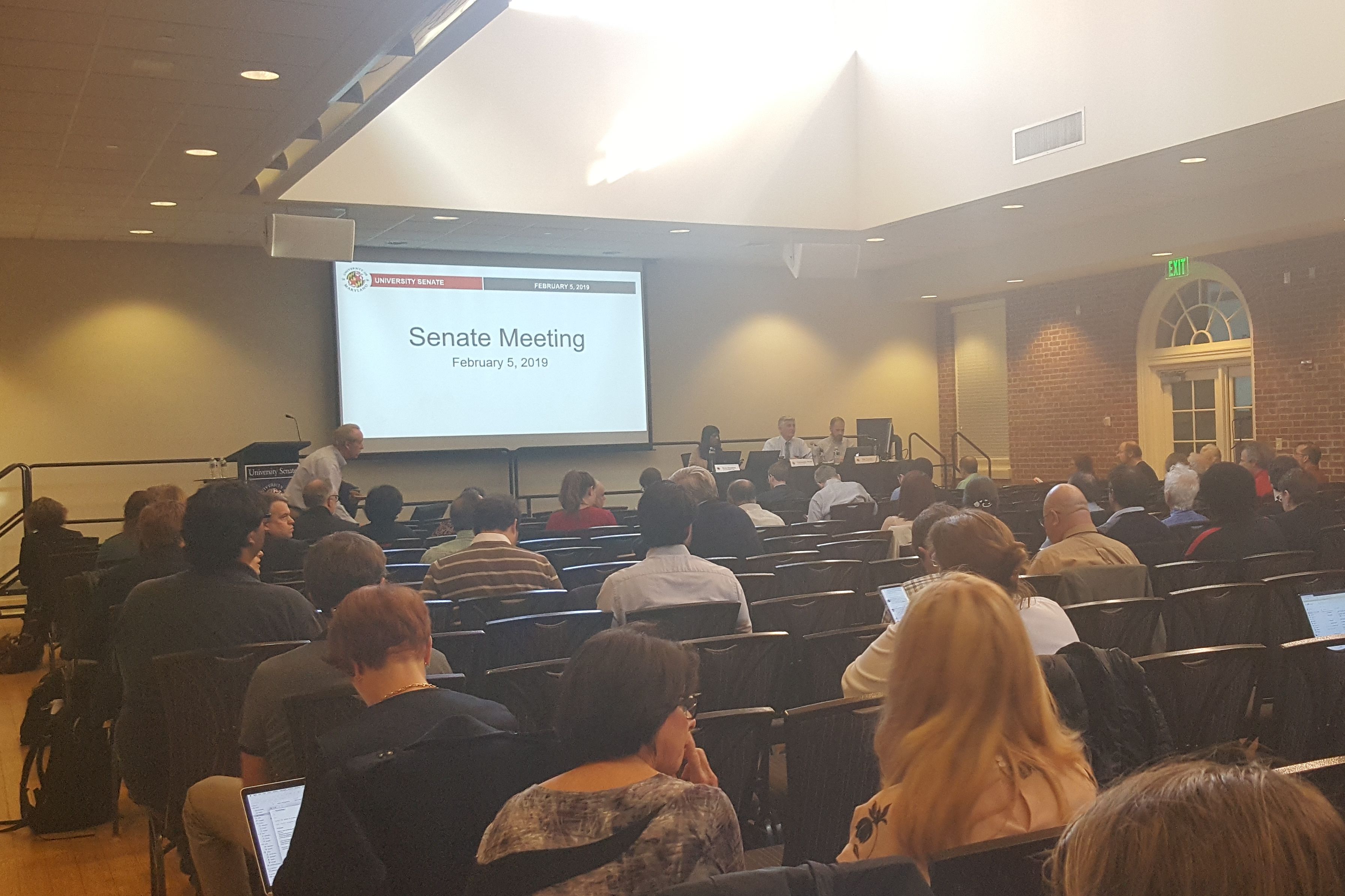The University of Maryland Senate currently does not have a direct say in this university’s budget. With the proposed creation of a Budgetary Affairs Committee, senators are hoping to change that.
The committee would aim to address some senators’ concerns that the body is not involved in the most important financial decisions on campus, said Senate Chair-Elect Pam Lanford.
“I think that’s probably the most concerning part from the standpoint of the members who are proposing this and the people they represent,” she said. “[Their] voice in the setting of priorities for long term planning is kind of absent from the process.”
The Elections, Representation and Governance Committee, which is reviewing the proposal, is expected to deliver its decision in late March. This follows an extension from the previous Feb. 8 due date.
The senate has yet to set a date to when they’ll vote on the measure. Harry Huntley, an undergraduate senator, said there is an unusual amount of support from past senate chairs, 10 of which are sponsors on the bill.
Having that many sponsors, especially with their past experience in the body, gives senators like Huntley confidence in the proposal.
“They’re people who really understand the senate and what the senate means,” said Huntley, a junior agricultural science and technology and economics major. “When all of these people come together, I really trust their opinion on it. And I think the administration should as well.”
[Read more: There’s no freshmen on the UMD Senate. This proposal could change that.]
One of the sponsors is former senate chair Jordan Goodman, who supported the proposal because he thinks knowledge of the budget is essential to make informed decisions as a legislative body.
“If we’re a part of shared governance, it’s hard to have an opinion on something unless you know what trade-offs are being made to do it,” Goodman, a physics professor, said.
This type of committee is also quite common at peer institutions, Lanford said. The proposal cites 12 other universities, such as the University of Iowa and the University of Michigan, that have financial affairs committees.
Lanford said members of this administration have expressed concerns to her about including more outside players in the budgeting process, because they say it is too complicated for those who don’t have specific training to work with it.
This university did not respond to two requests for comment on Thursday.
Though she said she is confident the senate could put together a knowledgeable committee to advise on these issues, it’s a concern Lanford understands.
“The budget of the institution is not something many people really fully understand or even partially understand,” she said.
This is the very reason senator and physics professor Tom Cohen said the committee is necessary. It’s a step that will make the budget more transparent to the entire campus, by way of opening up the process to the senate, putting them “in a much more informed position to make sensible political requests,” he said.
[Read more: UMD Senate wants more members to participate in its Slack channel]
In addition to providing the senate a window into the budgeting process, the committee — if implemented — would add to the senate’s understanding of the financial impact of legislation.
In the past, ex officio voting members with finance or budgeting experience have advised committees on legislation, said Senate Executive Secretary and Director Reka Montfort.
This system is working well, Huntley said, who remembered only one time a piece of legislation was returned to committee for more analysis on the financial impact.
Goodman said he envisions the proposed committee would work differently than others in the senate. The terms would be longer — at least two years — and members would be appointed based on their relevant experience in the area, such as a department budget officer.
Following university President Wallace Loh’s announcement that he would postpone his retirement until 2020, after initially intending to retire at the end of this academic year, the committee could be implemented during a transition in leadership.
“There’s been a strong feeling in much of the senate that the president sees his relationship with the senate as unidirectional,” Huntley said.
The question he and other senators continue to ask is if they should try to change these relations now or wait until a new leader is selected.
It’s an issue that gives Lanford pause.
“We don’t want to stick the next president with something she, he or they don’t find productive and helpful,” she said. “We just need to proceed cautiously.”



